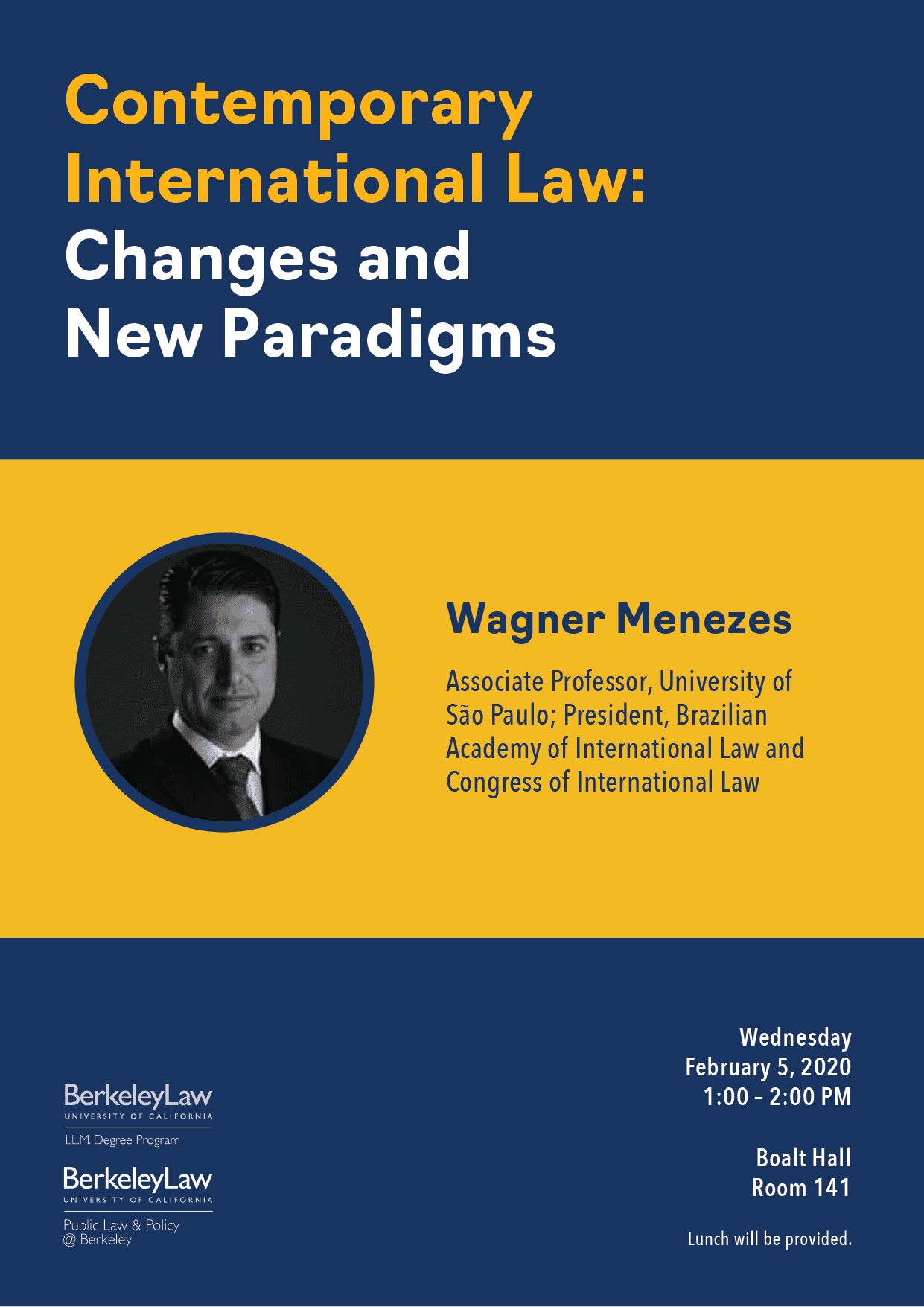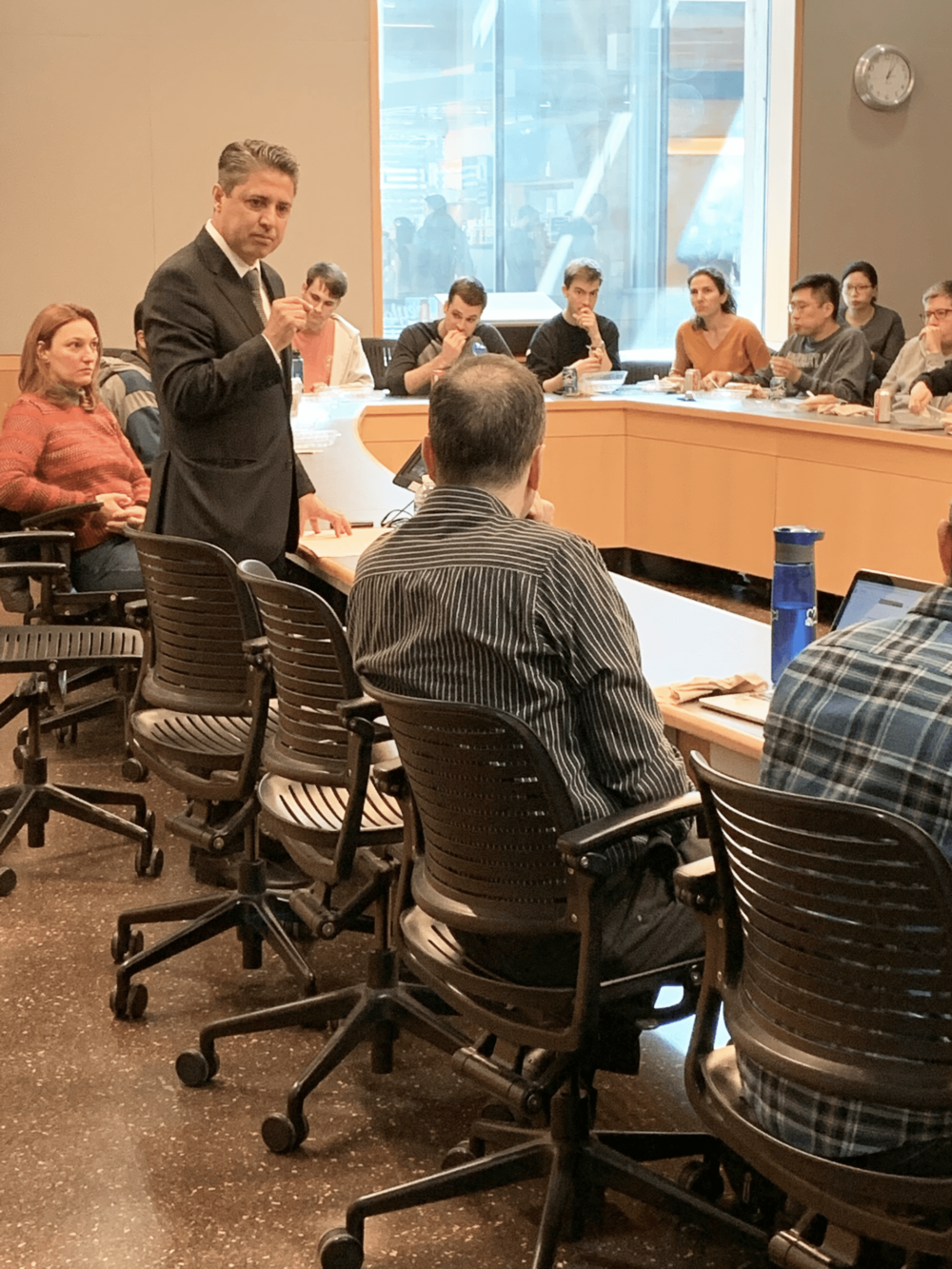
Contemporary International Law:
Changes and New Paradigms
Wednesday, February 5, 2020 | 1:00–2:00 PM
LAW | Room 141
Co-sponsored by the LLM Degree Program
Speaker
Professor Wagner Menezes of São Paulo University in Brazil / President, Brazilian Academy of International Law and the Brazilian Congress Of International Law.
Event Summary
On Wednesday, February 5, Professor Wagner Menezes—a distinguished Fulbright visiting scholar in the Public Law and Policy Program—delivered a presentation titled, “Contemporary International Law: Changes and New Paradigms.” Approximately 40 JD, LLM, and JSD students attended the event, which focused on the doctrine of international law and how it is both interpreted and applied to the real world.
During the talk, Menezes urged attendees to question where international law finds its normative authority. In other words: who enforces international law? Menezes put forward three responses. First, he argued that the UN helps to create normative principles and values. Secondly, he said that the “internationalization” of human rights has influenced international law enforcement, as it has helped to produce environmental law and criminal law, among other fields. Lastly, he argued that the creation of the World Bank and the World Trade Organization has impacted the international economic order we see today because both organizations have expanded interstate commerce and globalization more broadly. In analyzing these contemporary aspects of international law, Menezes ended his presentation by proposing a new way of looking at the system: interpreting international statutes with an understanding of the regional, intrastate view of laws. Moreover, Menezes argued that the limit of international law is the sovereignty of each state and, as such, we need to take a step towards localized globalism, rather than towards globalized localism.



